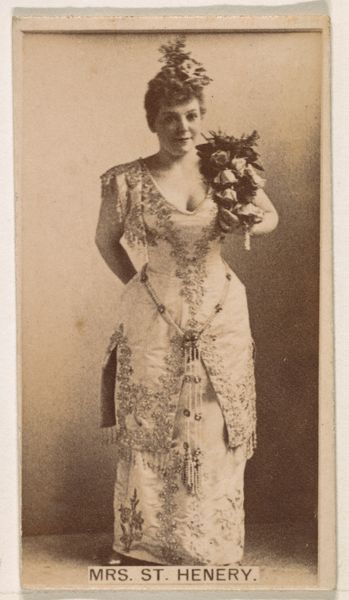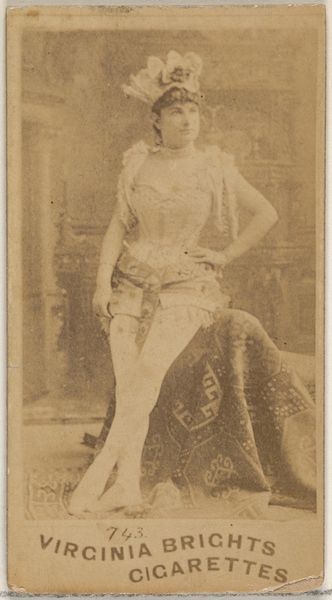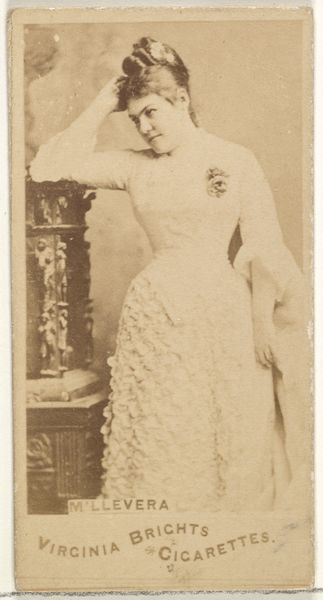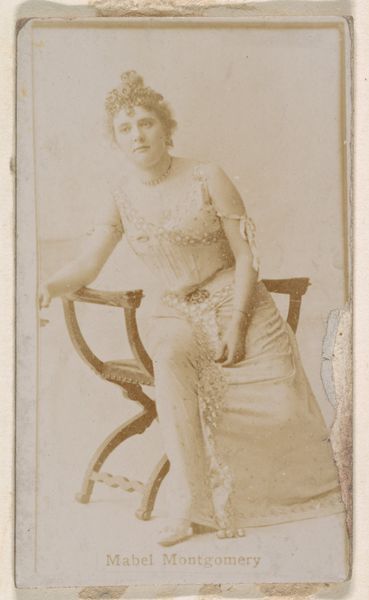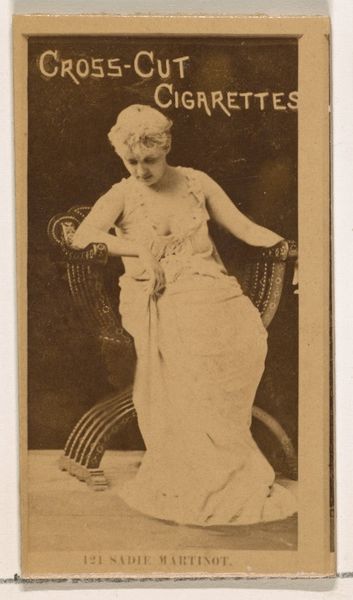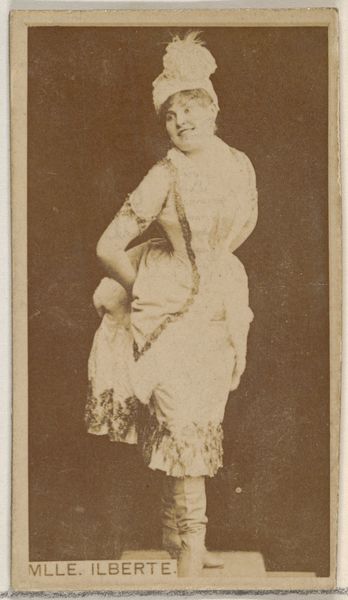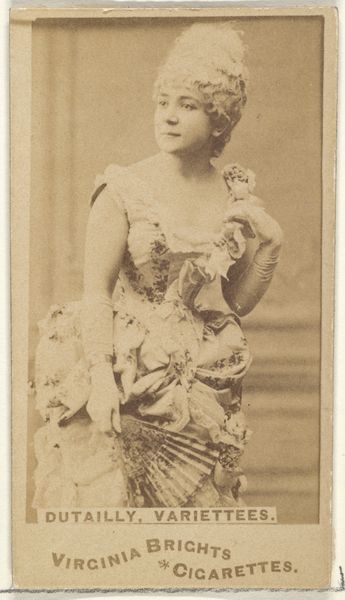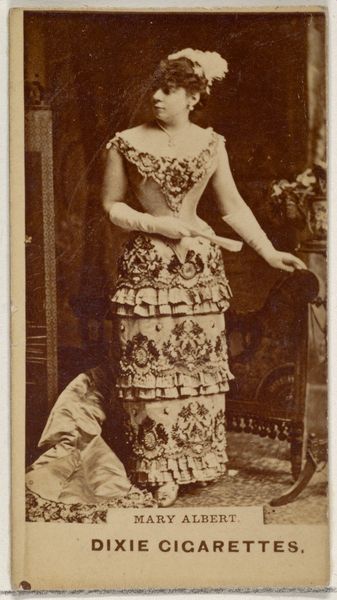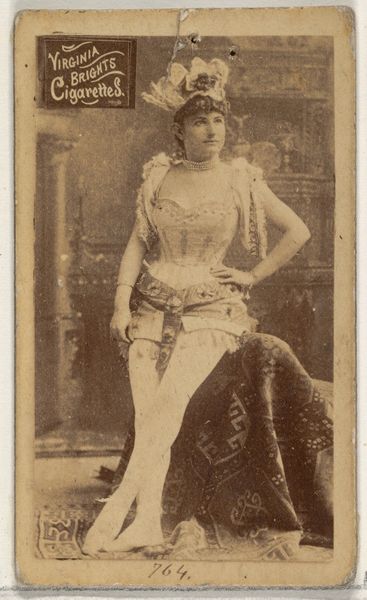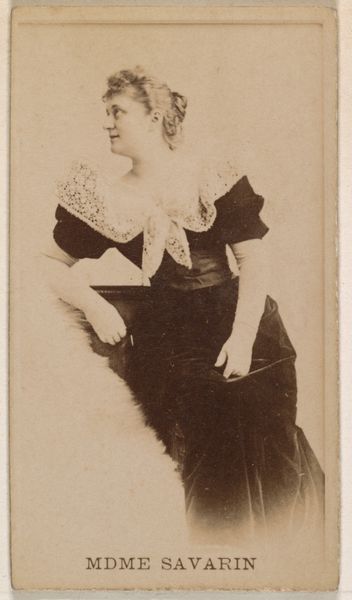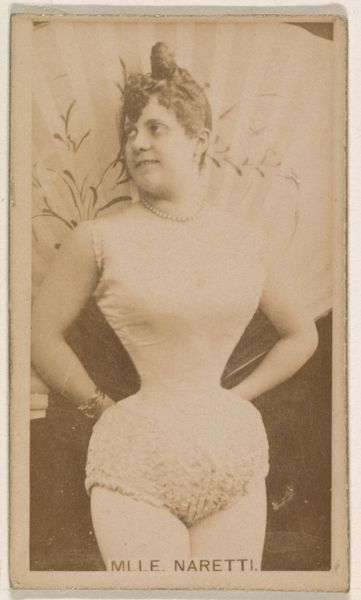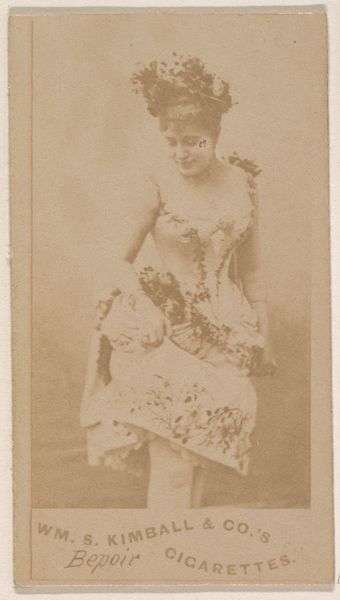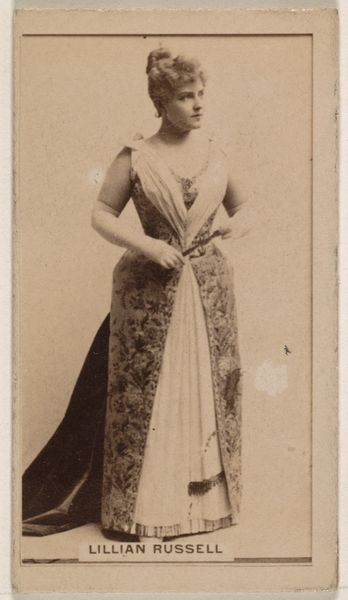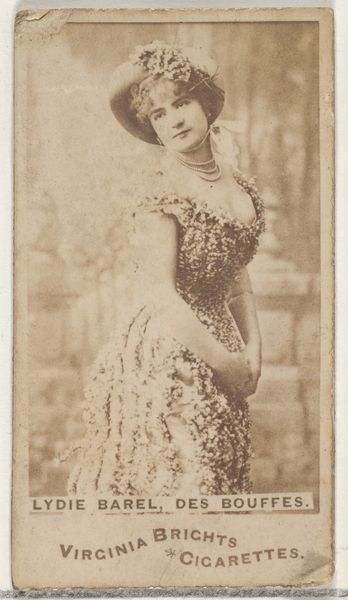
Cora Tanner, from the Actresses series (N245) issued by Kinney Brothers to promote Sweet Caporal Cigarettes 1890
0:00
0:00
photography
#
portrait
#
figuration
#
photography
Dimensions: Sheet: 2 1/2 × 1 7/16 in. (6.4 × 3.7 cm)
Copyright: Public Domain
Editor: Here we have a promotional print from 1890, part of the Actresses series by Kinney Brothers, advertising Sweet Caporal Cigarettes. It features Cora Tanner, photographed in a theatrical pose. There's a striking formality about her, yet something also feels... commercialized, perhaps? How do you interpret this work? Curator: It's crucial to see beyond the surface of a simple advertisement. These images are complex cultural artifacts reflecting late 19th-century societal values and the emerging role of women in public life. Tanner’s assertive pose, contrasted with the tight corset, reveals a tension between empowerment and objectification that was deeply ingrained. Editor: Objectification for commercial gains? Curator: Precisely. These cards circulated widely, normalizing certain beauty standards and, simultaneously, linking female representation to consumer culture. We should question who benefits from this image: the actress, the company, or the consumer? Consider the male gaze inherent in its design. How does this contribute to a culture of commodifying women? Editor: So, it’s more than just a picture; it's a statement about the commodification of women and their identities? Curator: Absolutely. Also, think about how Japonisme might influence this image. The composition might echo popular Japanese prints. What could that suggest about how "the exotic" and women's image become entangled? By exploring such visual connections we confront uncomfortable histories about how cultures, like individuals, can be misrepresented and exploited. Editor: I see… I never considered the multiple layers of representation involved. This really changes my perspective! Curator: Excellent. Now we can examine these issues in other artworks and even in today's image culture.
Comments
No comments
Be the first to comment and join the conversation on the ultimate creative platform.
